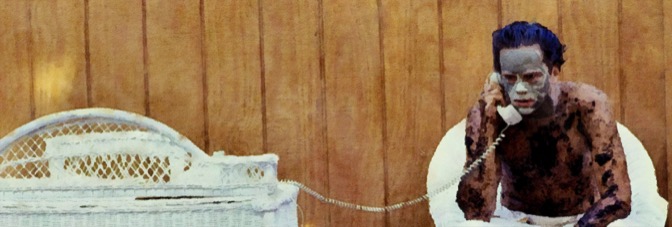Whatever his faults (and faulty films), Robert Altman never bought into what anyone said about him–not his critics, not his audience. The Player is an overtly hostile outing. Altman never had much nice to say about the film, as I recall, but he doesn’t try to say nice things with the film itself. He makes this unbelievably concise, unbelievably expository, unbelievably cynical film–the agreement for the viewer is unconditional capitulation to the film’s “dream.” Movies, now more than ever. The Player is a film for the film literate. It doesn’t come with a syllabus, but the references target a particular audience. Altman fans, actually. Altman makes The Player as indictment against those who like his work, yet went to go see The Player.
Hostility is one thing, indifference is another, but The Player is practically open warfare against the viewer. It’s amazing.
Of course, it is based on a novel. Presumably that novel had a similar plot; The Player tracks Tim Robbins’s somewhat successful, but not successful enough Hollywood executive through a murder investigation. The investigation’s into him. At the same time, the sharks are circling at the studio and darn if he just doesn’t want to romance the dead guy’s lady friend.
Altman sets everything up real fast. Not just the ground situation, but the film’s visual language. After an ambitious, self-aware lengthy opening shot, photographer Jean Lépine and Altman keep the moving camera. Only now there are lots of graceful cuts into the movement–Maysie Hoy and Geraldine Peroni’s editing of the film is a sublime achievement. Writer Michael Tolkin (adapting his novel) owes everything to them because Robbins’s romance with Greta Scacchi would never have worked without Hoy and Peroni. Altman doesn’t want the characters to be real because he doesn’t think they deserve it. Then he goes out of his way to make the viewer dislike the characters. But he directs the actors to play it less Hollywood and more real. And Hoy and Peroni cut it do make as emotionally effective as possible. Tolkin’s script’s plotting, especially of the relationship between Robbins and Scacchi, is phenomenal. Maybe his best move in the film, because with a different score, I’ll bet The Player could have been noir. But Altman didn’t want to do a noir, because he hates the characters.
It’s a real complex situation and expertly directed. Altman finds a way to mimic interview style for the many celebrity cameos. Even though The Player is a movie about real Hollywood, it’s clear who is a part of it and who isn’t. Altman’s so dismissive of it all, whether it’s the real Hollywood or the imagined. It’s kind of sad, really, as one of the film’s ideas is that older films were more sincere through their filmmaking. And Altman (and The Player) crap all over that idea. Twice. Like I said, it’s hostile.
Altman’s animosity aside, everything else about The Player is great. Sure, Tolkin’s script only works because of the filmmaking–which is another great meta commentary on the plot–but it does work and it works well. He’s got some great moments for actors and Altman has a phenomenal cast. Dina Merrill has a small but great part because Altman understands how an actor’s performance can resonant through a runtime. The Player is masterful work. Resentful, maybe, but more masterful for it.
Great supporting turns from Fred Ward, Whoopi Goldberg, Cynthia Stevenson, Brion James, Lyle Lovett. Scacchi’s good as the love interest but it’s not a great part.
Excellent music from Thomas Newman. Breezy music. The Player is all about smooth movement, whether shots or narrative pace.
And then there’s Robbins. He makes the movie. Robbins makes the movie so much he gets to walk away from it for a while and it’s still his movie (maybe because it takes him so long to get introduced properly in the first place). But Altman gets it, he knows how to make this movie be great and he wants the viewer to know they’re awful for making him do it. We aren’t in on the joke, we are the joke.
Love it.

Leave a Reply